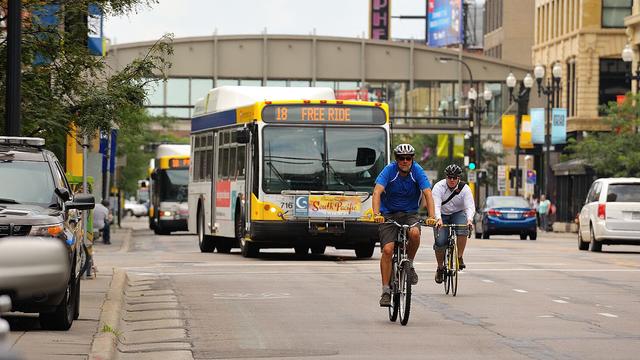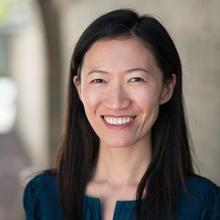When you think of your daily commute, what feelings come to mind? Would “happiness” be at the top of your list? Yingling Fan, an urban and regional planning professor at the Humphrey School of Public Affairs and a research scholar at the Center for Transportation Studies, wants to transform the way we experience transportation.
With the help of residents in the Twin Cities metro area, Fan has developed an innovative “Transportation Happiness Map” that captures the positive emotions tied to biking, reliable public transportation, safe and scenic paths, and avoiding traffic behind the wheel.
Fan’s research is at the center of a new short film, Community Power Minnesota: Transportation and Happiness, released last week by the Redford Center, a nonprofit organization that works with filmmakers, activists, and organizations to encourage environmental and media literacy.
“Transportation is an unavoidable emotional landscape in everyday life,” Fan said. “In any urban area, significant portions of land area are devoted to streets, parking, public transit, bicycle lanes, and sidewalks.”
With the support of local leaders, Fan wants this research to serve as the groundwork in placing human emotion at the center of transportation planning, leading to safer, healthier, and more accessible transportation and infrastructure design.
“If transportation systems are designed to narrowly focus on efficiency—getting people from point A to point B faster and easier—cities miss out on critical opportunities for fostering human flourishing,” said Fan. “It is also about creating equitable, inclusive, and empathic urban spaces. When a city's built environment evokes positive and shared human experiences, we will have a more compassionate society.”
Community Power Minnesota: Transportation and Happiness was directed by Sebastian Schnabel and produced by Cici Yixuan Wu. It's the final film in a five-part series produced by the Redford Center showcasing community power in a collective call for civic engagement around clean transportation to build a healthier, more just future for all.
Watch the film below.



